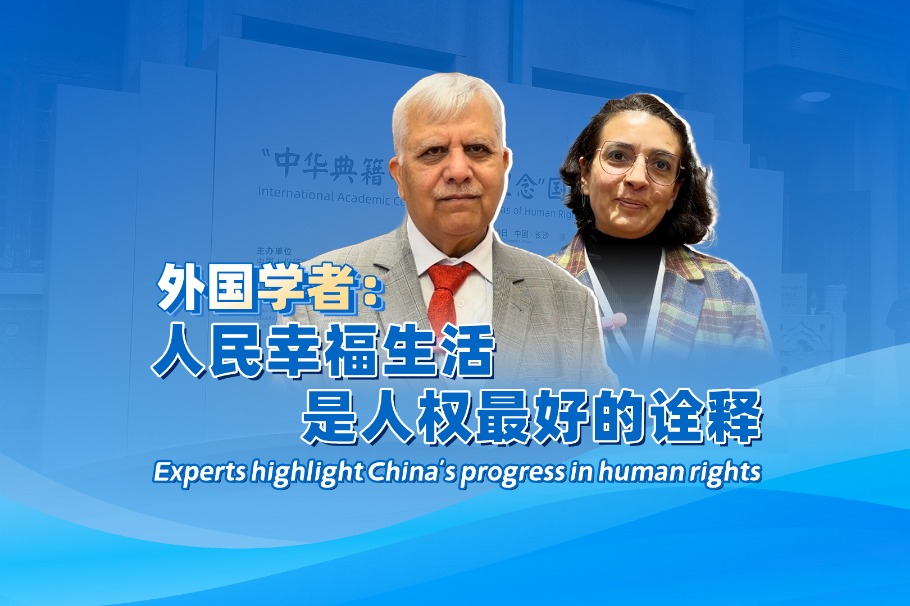Book reveals importance of Sino-US engagement
By May Zhou in Houston | China Daily | Updated: 2024-01-27 07:06
While the conversation on US-China relations has become almost exclusively about security issues and the potential for conflict, the editor of the recently published book Selling to China said it talks about the commercial relationship to make sure that it has not gotten lost.
Ker Gibbs, immediate past president of the American Chamber of Commerce in Shanghai and an executive in residence at the University of San Francisco, said the book "shows examples of American companies that actually are doing quite well in the China market and benefiting from China's economic rise".
He spoke at a webinar hosted by The Carter Center and the US Heartland China Association on Tuesday.
Out of concern that the United States is trying to contain China not just militarily but also economically, a group of US corporate executives who have operated in China for years offered their realistic views in the book about doing business in China.
As the subtitle suggests, they are "stories of success, failure and constant change" in doing business in China.
Gibbs said this is not a pro-China book or a China-bashing book. "It's very much a pro-engagement book," he said.
He pointed out that in Washington at the policy level and in corporate boards at the business level, people have an idea that everything is top down in China and everything happens in Beijing.
"That's actually not the case," Gibbs said. "The smart companies have found a way to partner with government at the local provincial and municipal level where a lot of the action happens."
Gibbs, who has split his time between China and the US since the 1990s, said many asked him why it is so important to be in China in the first place.
"It's because it's a large market. In certain industries, it's such a large market and so important that literally if you are a global company and you don't have a business in China, you are not a global company. It's also true if companies exit the China market," he said.
It is also true that Chinese companies have become more competitive and innovative, Gibbs said. Global companies need to be in China to not miss it.
On the auto industry, Gibbs said General Motors and BMW used to dominate the Chinese market, but "they lost that edge because the move to electrification has happened and the Chinese companies just picked up on that much faster".
And US carmakers missed a lot of this because they were unwilling to copy their Chinese competitors, he added.
Attractive market
China has entered a period of moderate economic growth rate of 4 to 5 percent for a foreseeable future. That is still a lot of economic activity on top of the existing economy, and China is still a very attractive market because of innovation, Gibbs said.
Both have to listen to each other and try to understand the situation from the other's point of view to improve the relationship, he added.
Gibbs sees that people-to-people exchange is a positive factor in the bilateral relations.
Currently teaching at the University of San Francisco, Gibbs took eight of his students to China with him last summer.
"They loved it. We did tours, I took them to a bunch of companies to tour. They all want to go back," Gibbs said. "I'm going to do the same this summer."
mayzhou@chinadailyusa.com
























